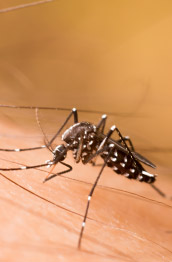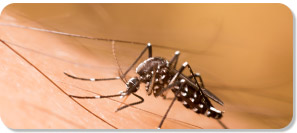FEVER

Dengue is a severe febrile illness caused by a virus that occurs and spreads especially in tropical countries, where environmental conditions favor the development and the proliferation of the mosquito Aedes aegypti, the primary infector. Here in Brazil, the incidence is higher during the hottest months.
The period of higher rates of dengue transmission goes from March to June, reaching its peak during the month of April. The month of June shows a significant decrease in the number of dengue cases, going deeper in the month of July.
But even with that significant decrease in the number of dengue cases during the less hot months (such as the period of the World Cup), it is important to be alert to the symptoms all year long. Sudden high fever, severe headache; bone, muscle or joint pain and spots on the skin are some of the signs and symptoms of dengue. Identifying them early on and looking immediately for medical assistance is fundamental.
In most of the cases, the clinical signs disappear within five and ten days, without any complications, but as it is not possible to assert that this will be the evolution of the illness, it is necessary to follow medical attention. Only the physician is able to, based on the clinical examination, define the treatment to be followed and evaluate the possibility (if so) of aggravation of the infection caused by the dengue virus.








